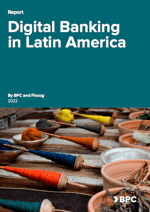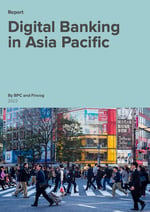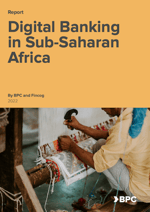In today's rapidly evolving environment, marked by shifting customer expectations, the emergence of new market participants, and continuous technological advancements, adaptability and agility have become indispensable qualities for businesses to succeed.
The payments sector, in particular, has witnessed a significant transformation, necessitating a transition from centralised, siloed, and monolithic IT architectures to cloud-native/hybrid cloud, microservices-based, and distributed IT architectures, underpinned by robust APIs. This article will explore the criticality of adaptability in the new economy, the value of collaborative partnerships, and innovative use cases from industry leaders such as Visa and the New Payments Platform Australia (NPPA).
To effectively navigate the changing landscape, organisations must foster collaborative partnerships, underpinned by agile architectural frameworks. These partnerships empower businesses to seamlessly integrate as providers or consumers of "as-a-service" solutions. Payment-as-a-Service (PaaS) allows digital banks, incumbents, fintechs, and PSPs to delegate their payment stack to cloud-based platforms specialising in services like card issuing, payments clearing, cross-border payments, disbursements, and e-commerce gateways. This approach enables financial institutions to offer these services to their end customers or embed them in other value chains within third-party ecosystems, alleviating concerns related to compliance, technology upgrades, and fraud resilience.
Outsourcing the payment stack yields a multitude of benefits, including flexibility, adaptability, and agility. Businesses can rapidly expand their service offerings, expedite time-to-market, and modernise payment product portfolios without incurring substantial upfront investments. Players can also continuously update and upgrade products without excessive maintenance investments, swiftly replace services, and incorporate new payment models. This ensures that their solutions remain at the forefront of technological advancements while promoting scalability.
Visa's use case exemplifies the significance of adaptability in a dynamic world. Traditionally, Visa's model relied on rigid connections to partners delivering closely intertwined services. However, as the ecosystem evolved and new players emerged, these connections, designed for large banks and IT infrastructures, began to impede the delivery of new services and inhibit innovation. To overcome this challenge, Visa developed an API integration layer known as the Visa Developer Platform (VDP), which exposed services via APIs, unbundling components and facilitating the consumption of individual microservices.
Visa Direct, one of the first services migrated to the VDP, initially catered to pull payments. Subsequently, Visa recognized the potential for push payments, such as consumer-to-consumer transactions or merchant refunds. Visa Direct's success is evidenced by its adoption by PayPal and MoneyGram for real-time money transfers.
The New Payments Platform Australia's (NPPA) PayTo offers another example of a service engineered for flexibility, agility, and adaptability. Australia's Consumer Data Right (CDR) initially introduced data sharing or read access, with indications of write access or payment initiation at a later stage. PayTo's capability design was intentionally broad and scalable to accommodate write access in the future. This proactive approach ensures that as the market evolves, PayTo can underpin a wide array of use-cases, including those yet to be conceived.
In conclusion, the capacity to adapt and respond swiftly to change is critical in the new economy. By embracing agile architectures, collaborative partnerships, and innovative solutions such as PaaS, businesses can ensure their competitiveness and deliver cutting-edge services and products to their customers. The use cases of Visa and NPPA serve as compelling examples, demonstrating that organisations that successfully adapt will not only survive but thrive in this rapidly changing landscape.
Download the Report Five Critical Payment Lessons from the New Economy, created in collaboration with Kapronasia.






